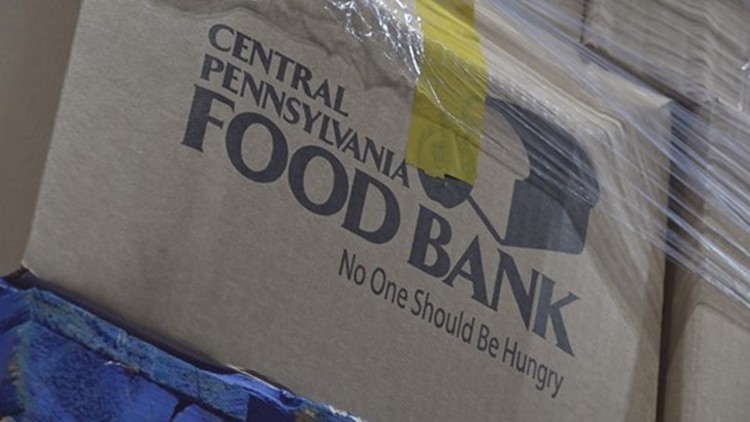LEBANON, Pa. — The Central Pennsylvania Food Bank on Thursday released an in-depth research report on hunger in Lebanon County and a series of strategies to improve the lives of the nearly 14,000 county residents impacted by food insecurity.
The full report and its recommendations are available here.
At the public release community and media event held at the Lebanon Valley Chamber of Commerce, Central Pennsylvania Food Bank CEO Joe Arthur thanked WellSpan Health for its generous support of the work reflected in the report.
He also thanked Community Health Council of Lebanon County for its partnership on the event.
“For the first time, because of this critical research, we are able to quantify things we have only suspected, such as the fact that Lebanon County’s children are particularly vulnerable; our new data shows that 71% of the county’s children are more likely to be food insecure than adults, giving Lebanon County the 14th highest such discrepancy in Pennsylvania,” Arthur said.
On the positive side, he added, there is now proof that neighbors who visit pantries regularly experience hunger nearly 50% less frequently than families in similar financial situations who visit less frequently.
"The Lebanon County Hunger Mapping Report released today underscores the importance of a nutritious, healthy diet and why it is critical that everyone have access to the food they need to sustain their health," said Ann Kunkel, vice president of Community Health, Home Care and Hospice for WellSpan Health.
For Arthur, one thing is abundantly clear: the data gathered makes the connection between hunger and the “upstream” issues of historic marginalization, housing insecurity, transportation, financial exclusion and low and irregular pay.
He added that there remains much work to be done in Lebanon County to address food insecurity, including improving neighbor experience at food pantries and increasing participation in the county’s Supplemental Nutrition Assistance Program (SNAP) and the Special Supplemental Nutrition Program for Women, Infants and Children (WIC), as well as ensuring that more children have the opportunity to eat wholesome meals at school.
Nearly 500 neighbor households in need across Lebanon County participated in the food bank’s research, representing more than 1,200 individuals.
Arthur said that the report issued today will help the community, charitable food network, healthcare providers, policymakers, government officials and funders better understand food insecurity in Lebanon County, and will also offer county residents ways they can get involved in addressing it, including volunteering and treating people well at local food pantries, working to reduce stigma by talking about SNAP and food pantries in a positive light, and advocating with policymakers on programs that are shown to reduce food insecurity.
The Central Pennsylvania Food Bank is a leader in conducting hunger and charitable food-related research. In 2018, it began its first county-wide assessment in York County, and since then has issued similar research on Cumberland and Lancaster counties.
It will release a report on Union, Snyder and Northumberland counties in the summer, and on Dauphin County next winter, and plans to map each of the 27 counties it serves.



